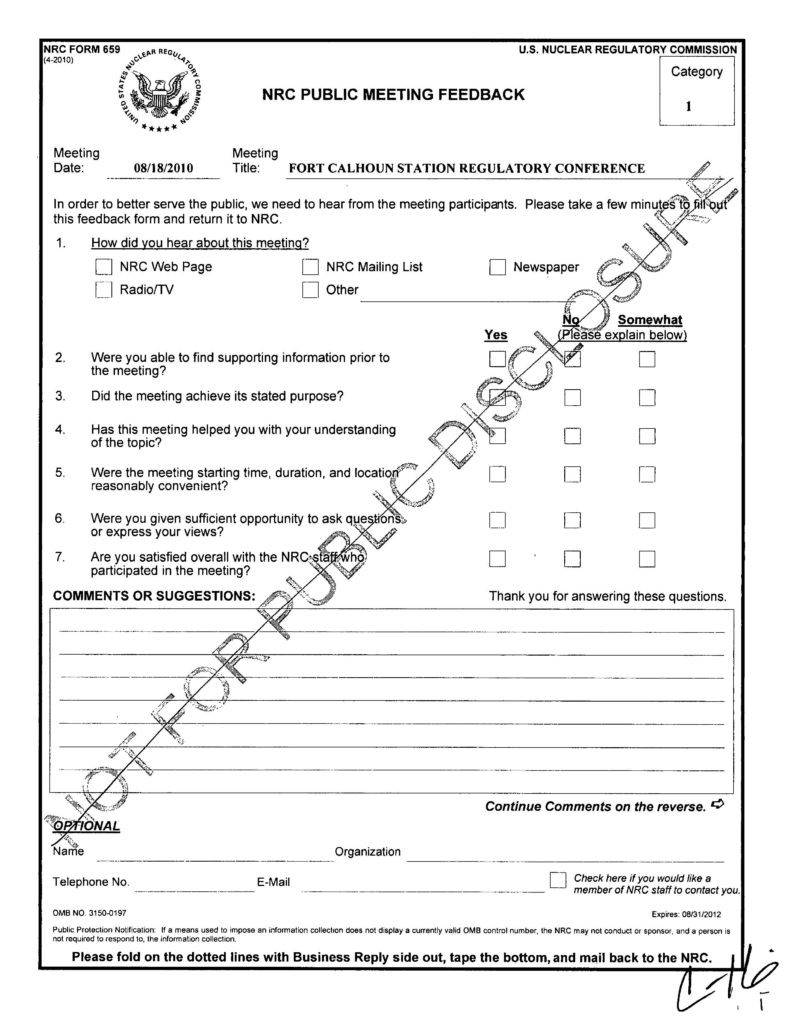Nuclear Energy Activist Toolkit #46
The NRC’s words about openness:
Nuclear regulation is the public’s business, and it must be transacted publicly and candidly. The public must be informed about and have the opportunity to participate in the regulatory processes as required by law. Open channels of communication must be maintained with Congress, other government agencies, licensees, and the public, as well as with the international nuclear community.
The NRC’s actions about openness:
NRC Form 659 is titled “NRC Public Meeting Feedback” and is distributed at public meetings conducted by the NRC staff to solicit opinions from the attendees on issues like how well the meeting was noticed and conducted.
This specific form was for a public meeting conducted by the NRC on August 18, 2010, about the Fort Calhoun nuclear plant in Nebraska. It is blank, containing no additional information other than the meeting subject and date.
The NRC classified this document as being “NOT FOR PUBLIC DISCLOSURE” and withheld it from the public until September 15, 2014, when it was released in the second—not the first—response to request FOIA/PA-2014-0210 submitted under the Freedom of Information Act. It took four years and two tries for this non-public Public Meeting Feedback form to reach the public.
Bottom Line
The NRC’s glasnost appears to be half-glasnost, at best. The NRC has federal regulations and internal procedures covering when to withhold security, trade-secret, and personal identify information from public disclosure. But none of those requirements and criteria remotely justified withholding a blank public meeting feedback form.
And yet withhold it they did.
Whatever the excuses, an agency purporting openness as a core value is definitely in trouble when it can learn transparency lessons from the former Soviet Union.
The UCS Nuclear Energy Activist Toolkit (NEAT) is a series of post intended to help citizens understand nuclear technology and the Nuclear Regulatory Commission’s processes for overseeing nuclear plant safety.

